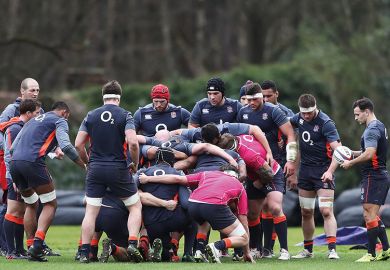South Australia’s two biggest universities have launched formal merger talks, in a move that could rationalise institutional offerings in the country’s so-called university city.
The discussions between the University of Adelaide and the University of South Australia, revealed on 19 June, could also increase merger pressures in other crowded higher education markets, notably Perth.
But the people leading the discussions, Adelaide chancellor Kevin Scarce and his South Australia counterpart Jim McDowell, stressed that the merger was not a done deal.
“We are announcing the start of a conversation and an exploration, not a destination,” they said in a joint statement.
“The national and international landscapes of higher education are rapidly changing,” the chancellors said. “Now is the time to facilitate a conversation about whether uniting our universities would create a new university of scale that would be well placed to anticipate and respond to this changing landscape.”
The two institutions boast nine campuses between them, including adjoining campuses at the edge of Adelaide’s central business district. The University of Adelaide came equal 134th in this year’s Times Higher Education World University Rankings, while South Australia was placed in the 201-250 range.
But both have struggled recently, with student numbers falling by about 2 per cent last year, according to the latest available education department statistics.
With three public universities and the private Torrens University serving a city of about 1.3 million people, Adelaide has a busy higher education market.
Things could get worse after the federal government froze teaching grants last December. An analysis by the Australian Broadcasting Corporation concluded that the University of South Australia would lose 5.7 per cent of its base funding, or A$83 million (£46.5 million), as a result. The University of Adelaide faced a cut of 4.2 per cent or A$53 million.
A statement from the universities said that Peter Rathjen, Adelaide’s vice-chancellor, and David Lloyd, his counterpart at South Australia, would draw up a joint report on the possibility of a merger over the next six months, alongside a consultation process. The institutions’ councils would then decide on whether to go ahead with a union.
The chancellors said that they needed to determine “whether this would enable us to deliver greater access and benefits to students, create more opportunities for staff, enable greater collaboration with and contribution to our community, and make greater economic, social and cultural contributions to South Australia”.
“We can foresee…that combining and consolidating our complementary expertise, particularly in areas such as defence, health, agriculture, education and engineering, would position a new university in the top few in Australia for size and scale; may place it firmly within the world’s top 100; and have a reach that could make it one of the most international universities in Australia,” the pair said.
Simon Birmingham, Australia’s education minister, said that he welcomed the announcement from “two universities that have such distinctive but complementary missions”.
“It’s pleasing to see the universities of Adelaide and South Australia acknowledging that bold leaps may be required to deliver higher education that best serves South Australia’s future requirements,” Mr Birmingham said. “Thorough analysis to establish the benefits of any change are quite properly a precondition of final decisions and I look forward to closely assessing the outcomes of this work.”
Register to continue
Why register?
- Registration is free and only takes a moment
- Once registered, you can read 3 articles a month
- Sign up for our newsletter
Subscribe
Or subscribe for unlimited access to:
- Unlimited access to news, views, insights & reviews
- Digital editions
- Digital access to THE’s university and college rankings analysis
Already registered or a current subscriber?








